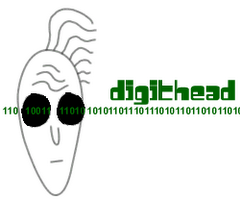I'm trying to wrap my head around Git, Linus Torvalds's complicated but powerful distributed version control system. Here's some quick notes and a wad of links:
Configure
git config --global user.name "John Q. Hacker" git config --global user.email "jqhacker@somedomain.com"
Start a new empty repository
git init
mkdir fooalicious cd fooalicious git init touch README git add README git commit -m 'first commit' git remote add origin git@github.com:nastyhacks/foo.git git push -u origin master
Create a local copy of a remote repository
git clone [remote-repository]
Commit to local repository
git commit -a -m "my message"
Review previous commits
git log --name-only
See what branches exist
git branch -v
Switch to a different branch
git checkout [branch you want to switch to]
Create a new branch and switch to it
git checkout -b [name of new branch]
Merge
git merge mybranch
merge the development in the branch "mybranch" into the current branch.
Show remote repositories tracked
git remote -v
Track a remote repository
git remote add --track master origin git@github.com:jqhacker/foo.git
Retrieve from a remote repository
git fetch
Git fetch grabs changes from remote repository and puts it in your repository's object database. It also fetches branches from remote repository and stores them as remote-tracking branches. (see this.)
Fetch and merge from a remote repository
git pull
Push to a remote repository
git push
Pull changes from another fork
git checkout -b otherguy-master master git fetch https://github.com/otherguy/foo.git master git merge otherguy-master/master git checkout master git merge otherguy-master git push origin master
Resolve merge conflict in favor of us/them
git checkout --theirs another.txt git checkout --ours some.file.txt
Diff between local working directory and remote tracking branch
Say you're working with Karen on a project. She adds some nifty features to the source file nifty_files/our_code.py. You'd like to diff your local working copy against hers to see the changes, and prepare to merge them in. First, make sure you have a remote tracking branch for Karen's repo.
git remote add karen git://github.com/karen/our_project.git git remote -v
The results ought to look something like this:
karen git://github.com/karen/our_project.git (fetch) karen git://github.com/karen/our_project.git (push) origin git@github.com:cbare/our_project.git (fetch) origin git@github.com:cbare/our_project.git (push)
Next, fetch Karen's changes into your local repo. Git can't do a diff across the network, so we have to get a local copy of Karen's commits stored in a remote tracking branch.
git fetch karen
Now, we can do our diff.
git diff karen/master:nifty_files/our_code.py nifty_files/our_code.py
Fixing a messed up working tree
git reset --hard HEAD
return the entire working tree to the last committed state
Shorthand naming
Branches, remote-tracking branches, and tags are all references to commits. Git allows shorthand, so you mostly ever shorthand rather than full names:
- The branch "test" is short for "refs/heads/test".
- The tag "v2.6.18" is short for "refs/tags/v2.6.18".
- "origin/master" is short for "refs/remotes/origin/master".
Links
- Git User’s Manual Mostly cryptic but occasionally very helpful. See:
- Git Tutorial
- github's Git cheat sheets
- github on Working with remotes
- The Git Community Book
- Understanding Git Conceptually
- Git - SVN Crash Course
- The thing about Git by Ryan Tomayko
- git ready
- git equivalent of svn status -u
- git: fetch and merge, don’t pull
- Git Cheat Sheet
- Mastering Git Basics video presentation by Tom Preston-Werner of GitHub









 R Bloggers
R Bloggers